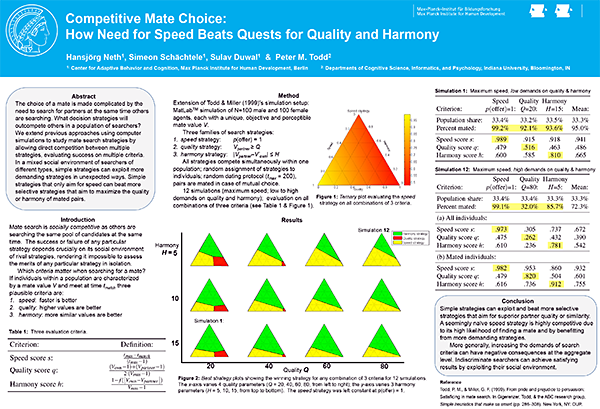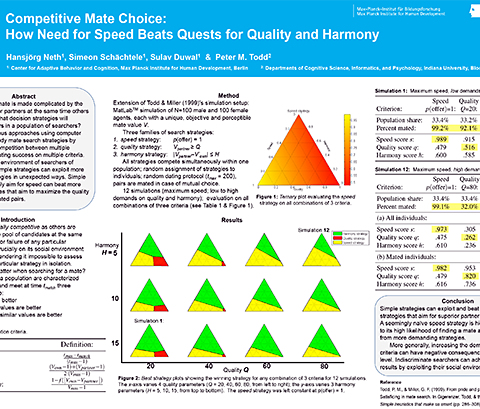Posts Tagged: JDM
judgment & decision making
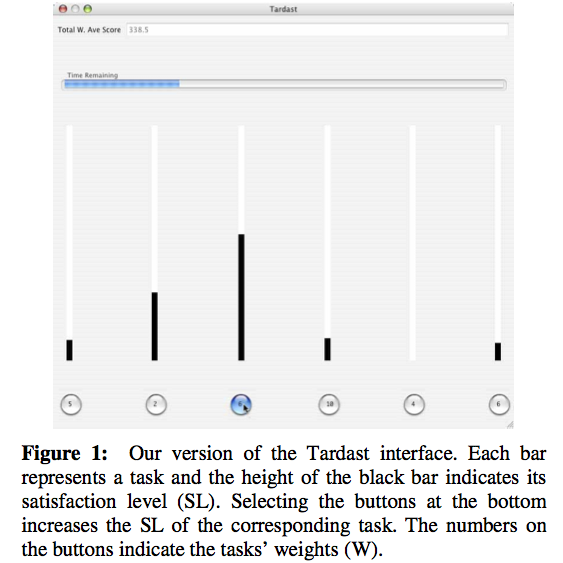
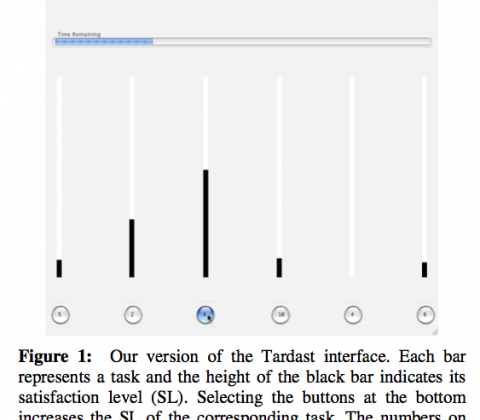
Paper: Feedback design for controlling a dynamic multitasking system
| If an organism is confronted with the problem of behaving approximately rationally, or adaptively, in a particular environment, the kinds of simplifications that are suitable may depend not only on the characteristics—sensory, neural, and other—of the organism, but equally on the nature of the environment. |
| H.A. Simon (1956), Rational choice and the structure of the environment, p. 130 |
Hansjörg Neth, Sangeet S. Khemlani, Wayne D. Gray
Feedback design for the control of a dynamic multitasking system: Dissociating outcome feedback from control feedback
Objective: We distinguish outcome feedback from control feedback to show that suboptimal performance in a dynamic multitasking system may be caused by limits inherent to the information provided rather than human resource limits.
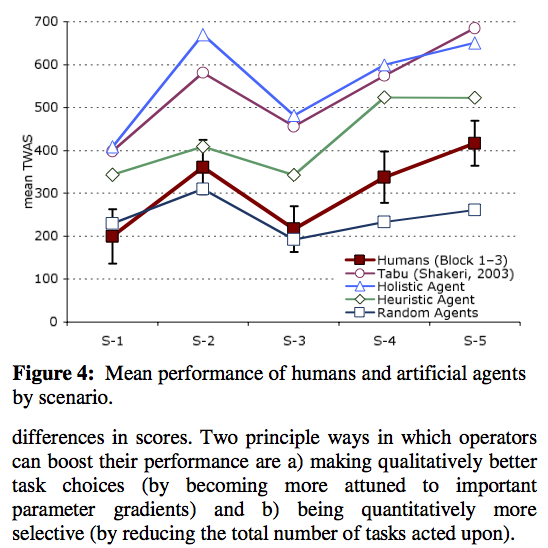
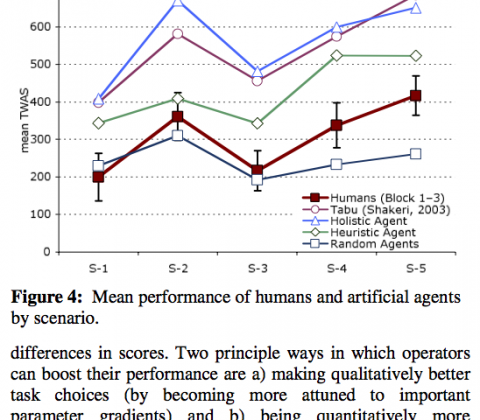
Paper: Juggling multiple tasks in a synthetic task environment
| Doing two things at once, like singing while you take a shower, is not the same as instant messaging while writing a research report. Don’t fool yourself into thinking you can multitask jobs that need your full attention. You’re not really having a conversation while you write; you’re shifting your attention back and forth between the two activities quickly. You’re juggling. When you juggle tasks, your work suffers AND takes longer — because switching tasks costs. |
| Gina Trapani, Work Smart, FastCompany.com |
Hansjörg Neth, Sangeet S. Khemlani, Brittney Oppermann, Wayne D. Gray
Juggling multiple tasks: A rational analysis of multitasking in a synthetic task environment
Abstract: Tardast (Shakeri 2003; Shakeri & Funk, in press) is a new and intriguing paradigm to investigate human multitasking behavior, complex system management, and supervisory control. We present a replication and extension of the original Tardast study that assesses operators’ learning curve and explains gains in performance in terms of increased sensitivity to task parameters and a superior ability of better operators to prioritize tasks. We then compare human performance profiles to various artificial software agents that provide benchmarks of optimal and baseline performance and illustrate the outcomes of simple heuristic strategies. Whereas it is not surprising that human operators fail to achieve an ideal criterion of performance, we demonstrate that humans also fall short of a principally achievable standard. Despite significant improvements with practice, Tardast operators exhibit stable sub-optimal performance in their time-to-task allocations.
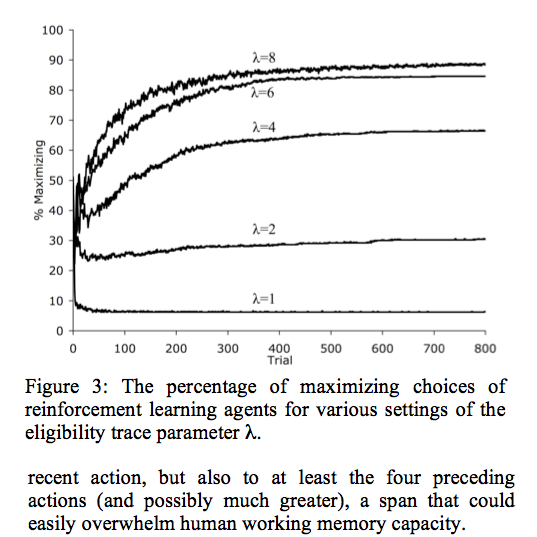
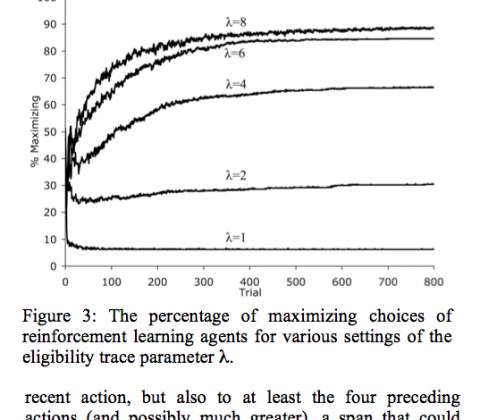
Paper: Melioration dominates maximization
| There is no reason to suppose that most human beings are engaged in maximizing anything unless it be unhappiness, and even this with incomplete success. |
| R.H. Coase (1980), The Firm, the Market, and the Law, p. 4 |
Hansjörg Neth, Chris R. Sims, Wayne D. Gray
Melioration dominates maximization: Stable suboptimal performance despite global feedback
Abstract: Situations that present individuals with a conflict between local and global gains often evoke a behavioral pattern known as melioration — a preference for immediate rewards over higher long-term gains. Using a variant of a binary forced- choice paradigm by Tunney & Shanks (2002), we explored the potential role of global feedback as a means to reduce this bias.
